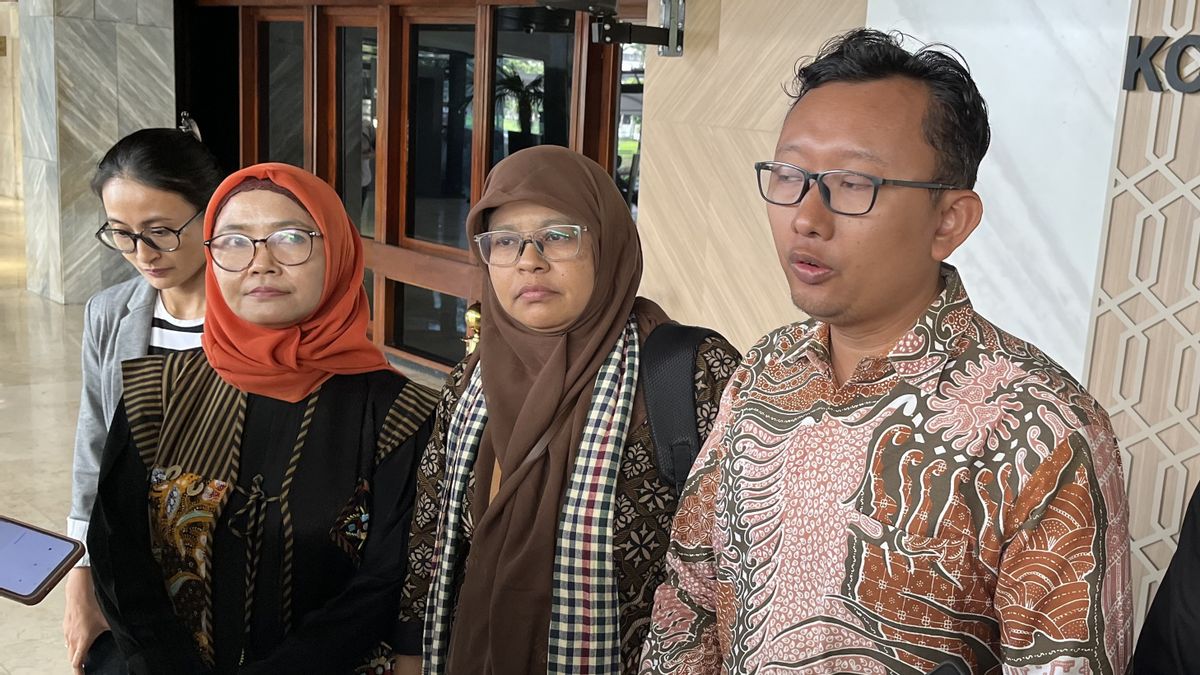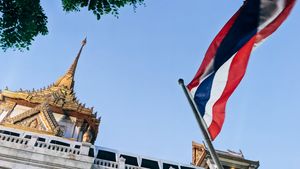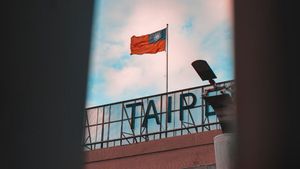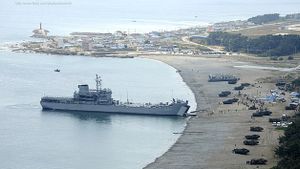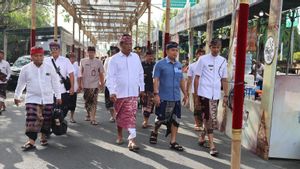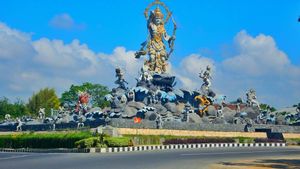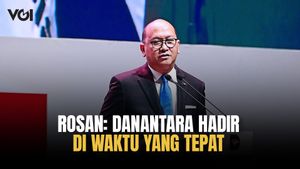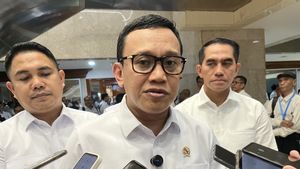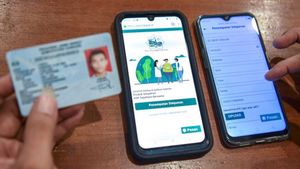JAKARTA - General Chairperson of the Alliance of Independent Journalists (AJI), Nani Afrida, highlighted articles that were considered to interfere with press freedom in the revision of the Criminal Procedure Code (KUHAP). For example, regarding the prohibition of coverage and live broadcast of the trial.
"(For example) the trial is closed, or it must be streaming, there must be permission from the chairman of the court. We feel it interferes with PERS work which should be transparent, we must know what is happening inside," said Nani, Tuesday, April 8.
Nani, who are members of the Civil Society Coalition, urged that articles that interfere with such press freedom be removed. Because the coverage of the trial is considered part of the public interest.
"That's why I together with my friends from the coalition tried to get articles like this that are disturbing us to work now, they can be removed from there, if they can be abolished," he said.
"Because it is the right of all nations, it has a relationship with the public interest when a court process occurs. Especially if for example it involves what is called public interest, such as corruption, for example, or premeditated murder, and others," continued Nani.
Unless, he continued, the court regarding sexual violence might be carried out behind closed doors. "And we have ethics about that. I think journalists will understand and they will definitely not cover," he said.
"But what is related to the public interest, yes, we must cover it. That's all," added Nani.
According to Nani, the pretext of banning live broadcasts from the trial so that witnesses do not cheat or change statements is not an excuse. "That can't be an excuse. But if outside the court they can find out each other from their lawyers. How to cover it up? It's impossible too," he said.
"Now the most important thing is to open access for journalists as well to know what is happening in court. That's why we from AJI are enthusiastic about, if possible, don't interfere with our work as journalists. This is the last six years, the process of making legislation has a lot of criticism from the public," he continued.
SEE ALSO:
Previously, advocate Juniver Girsang suggested that the revision of the Criminal Procedure Code prohibit the media from conducting live broadcasts of trials without court permission. This was conveyed by Juniver in a public hearing (RDPU) with Commission III of the DPR, Monday, March 24.
"Our proposal in question is article 253 paragraph, 'Everyone in the courtroom is prohibited from publicizing / directly covering the trial process without a court permit,'" Juniver said.
Even so, Juniver emphasized that live broadcasts can be allowed if they get permission directly from the panel of judges.
"It is prohibited to publish or direct coverage, without permission, it could be permitted by the judge, of course there are considerations," he explained.
Juniver also expressed concern that the live broadcast of the trial could allow witnesses who have not been examined to change their statements.
"Why should we agree with this? Because people in criminal trials are covered directly, witnesses can hear, can influence each other, can cheat, we agree with that," said Juniver.
The English, Chinese, Japanese, Arabic, and French versions are automatically generated by the AI. So there may still be inaccuracies in translating, please always see Indonesian as our main language. (system supported by DigitalSiber.id)
